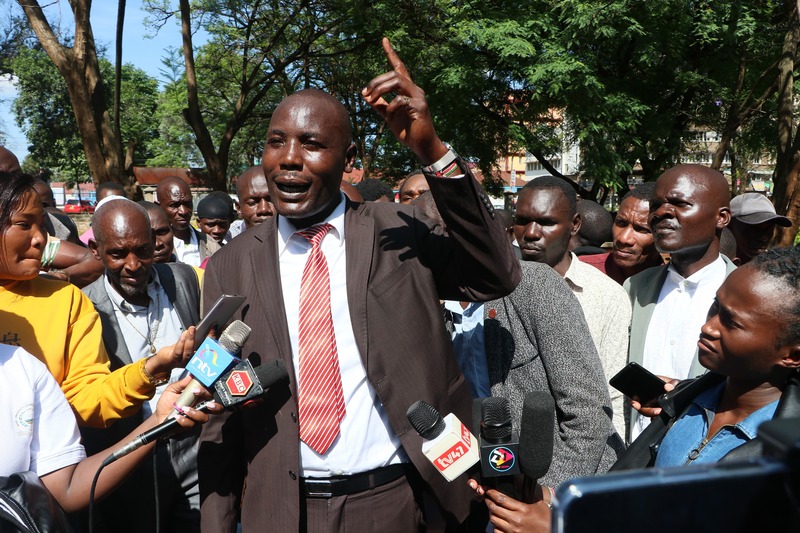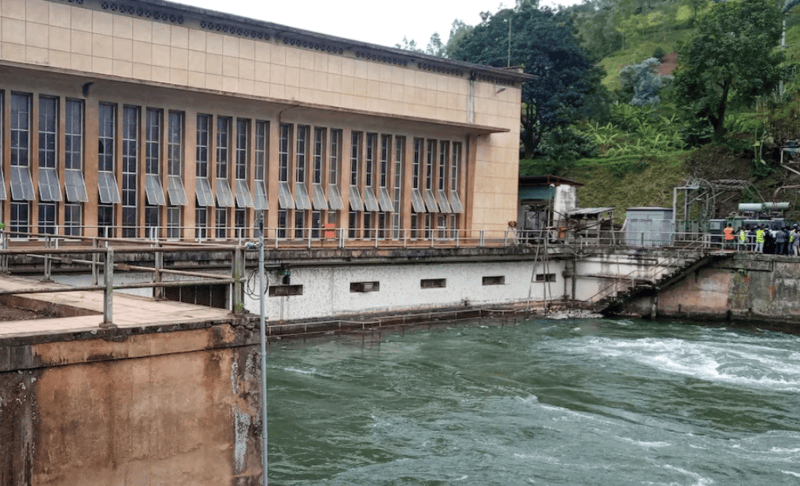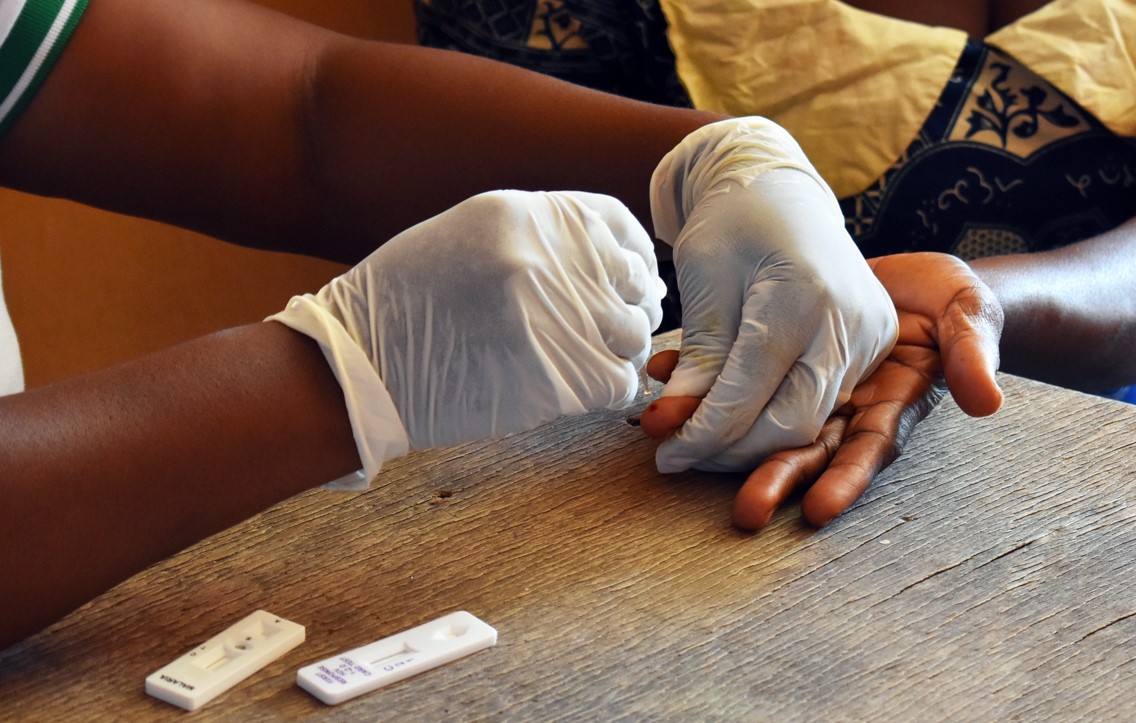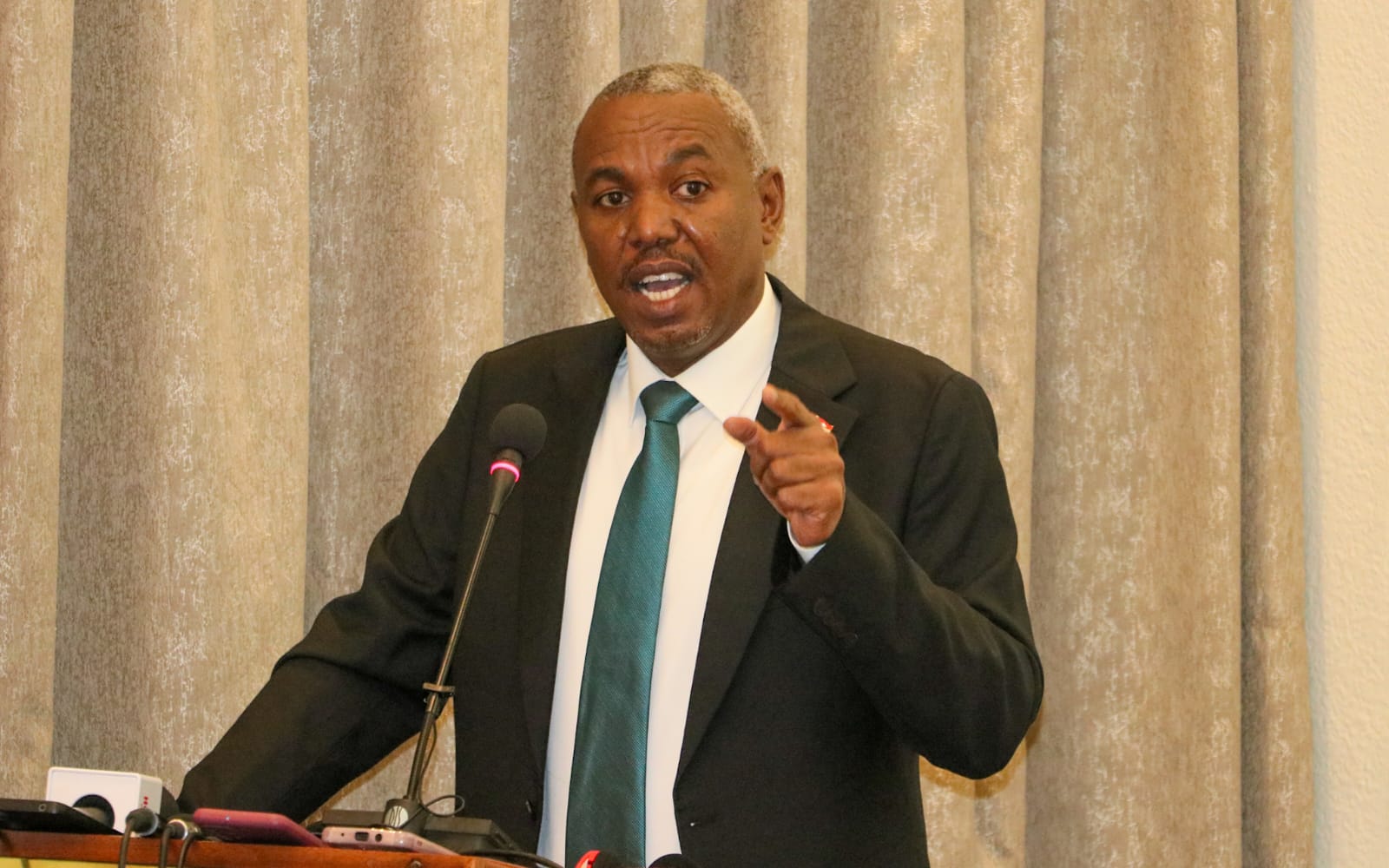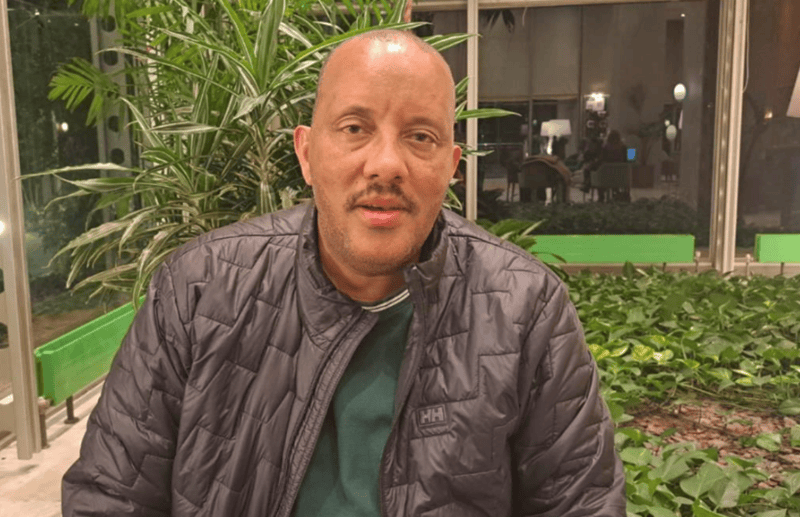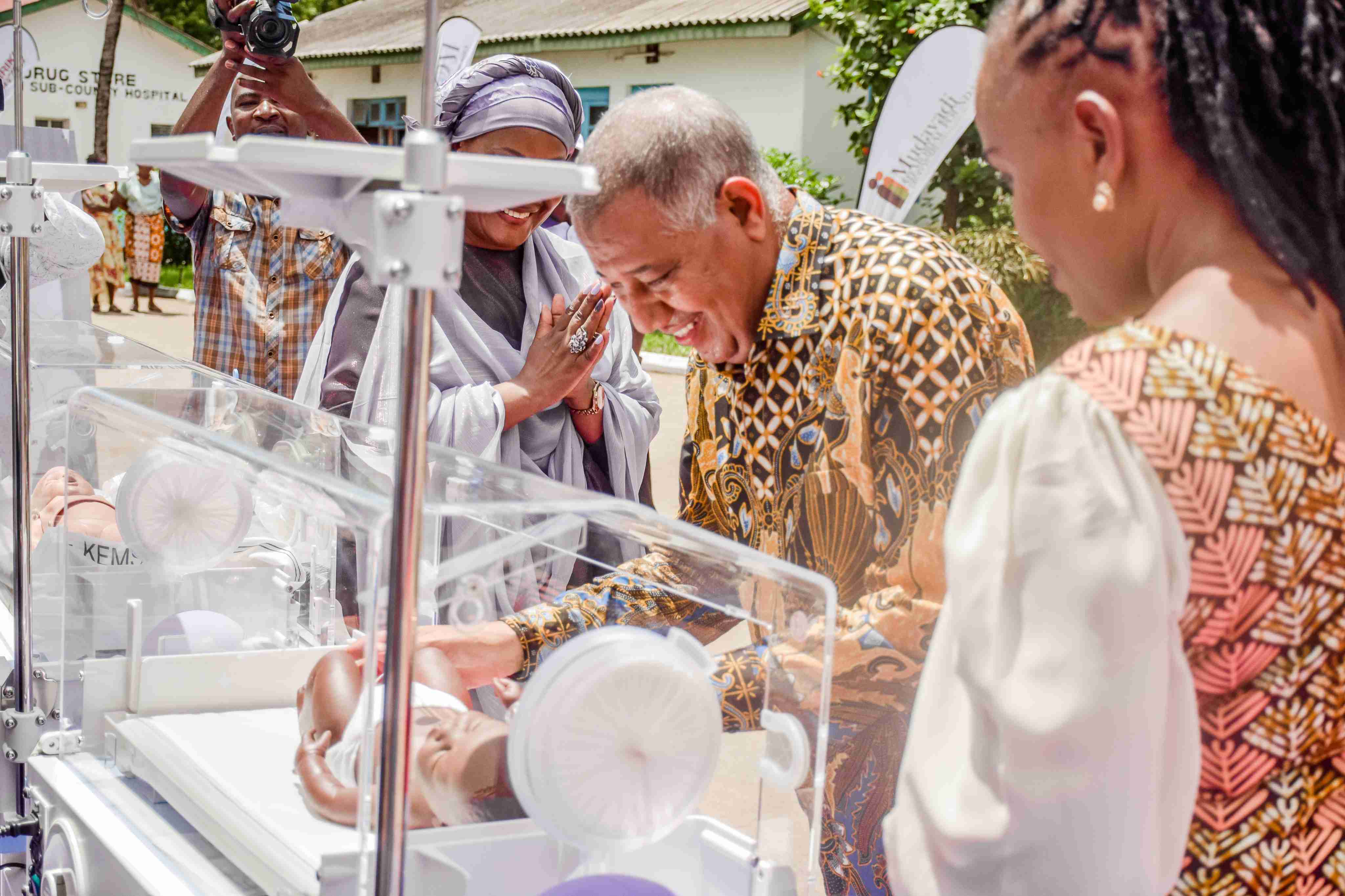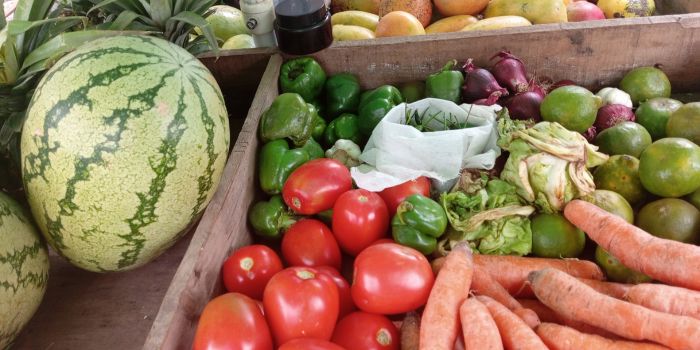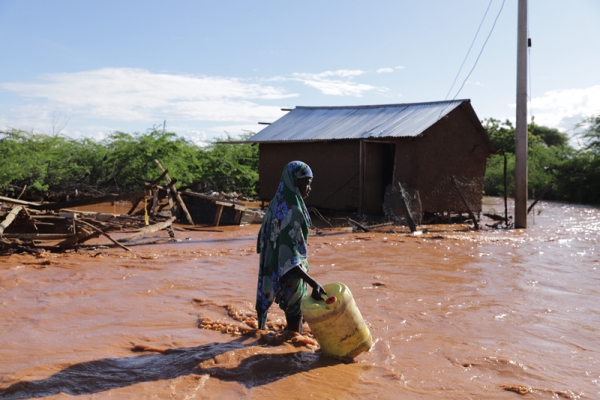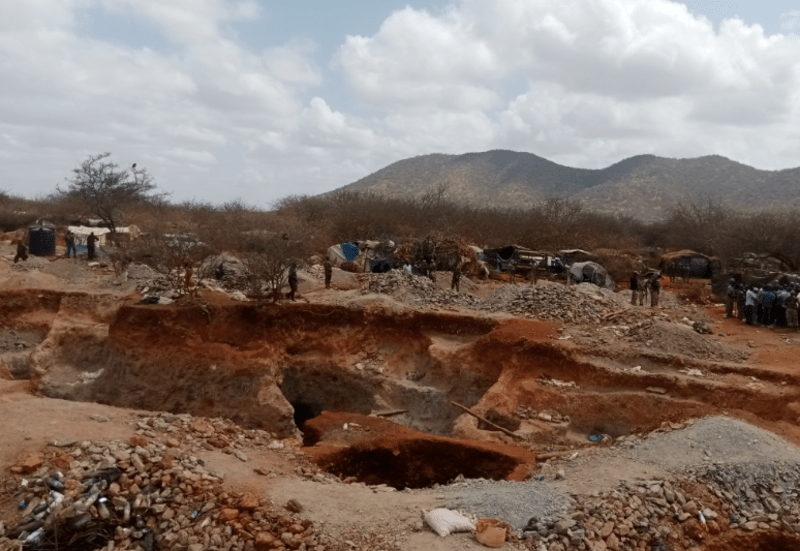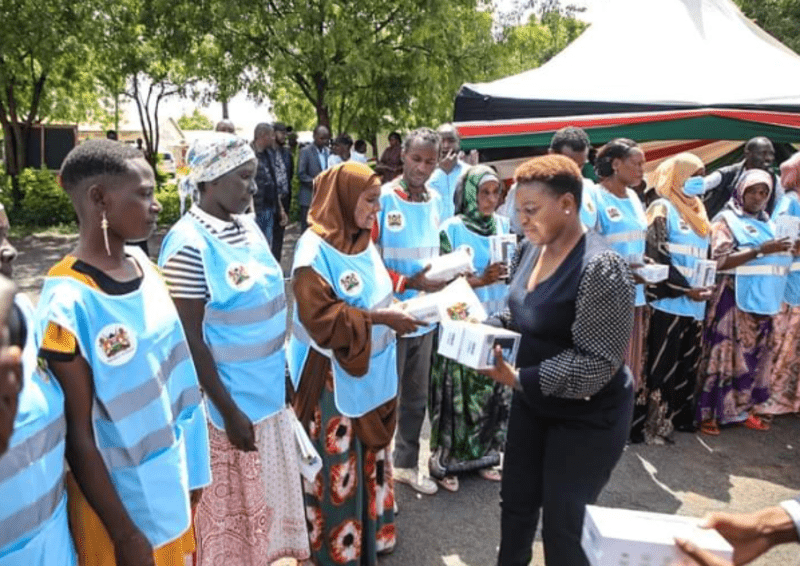How water access is promoting diversification of livelihoods in semi-arid Isiolo
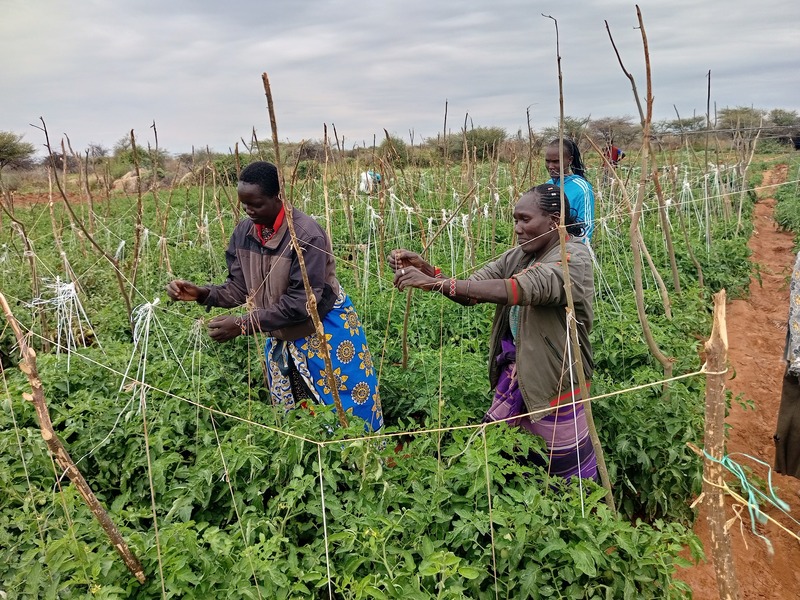
By Waweru Wairimu |
Like other parts of the county, Ngaremara is prone to perennial drought which threatens pastoralism, the region's main economic stay, and results in massive loss of livestock, impoverishing and rendering the local communities food insecure
Increased water access in Isiolo's Ngaremara ward that borders Samburu and Meru counties has been hailed for promoting diversification of livelihoods and peaceful coexistence between the local communities and their neighbours.
Like other parts of the county, Ngaremara is prone to perennial drought which threatens pastoralism, the region's main economic stay, and results in massive loss of livestock, impoverishing and rendering the local communities food insecure which puts children aged below five years at risk of being malnourished.
Keep reading
A community that has for a long borne the brunt of climate change is slowly building its resilience and acclimatising to the global crisis, thanks to improved water access.
At Aroo village for instance, local Turkana women are undertaking irrigated farming on a two-acre land using water from a local borehole sunk by USAID in collaboration with the county government, Catholic Relief Services and Caritas Isiolo.
The water supply system that was commissioned a year ago has two water kiosks, three livestock troughs and a 50 cubic metre storage tank.
We meet Arot Lokadon, 57, filling a water jerrican at Attir water kiosk. "We used to walk for over six kilometres to Matabithi and Gambela to get water but the project has eased the burden. I spend about 15 minutes to the water kiosk meaning in half an hour I am back home," elated Arot told Eastleigh Voice.
Apart from the promotion of hygiene, she said, they no longer ration the commodity as it happened before and which exposed them to various diseases.
"We are no longer exposed to the risk of attack by bandits, sex pests or wildlife which we faced while walking for many kilometres including snaking through bushy areas," she said.
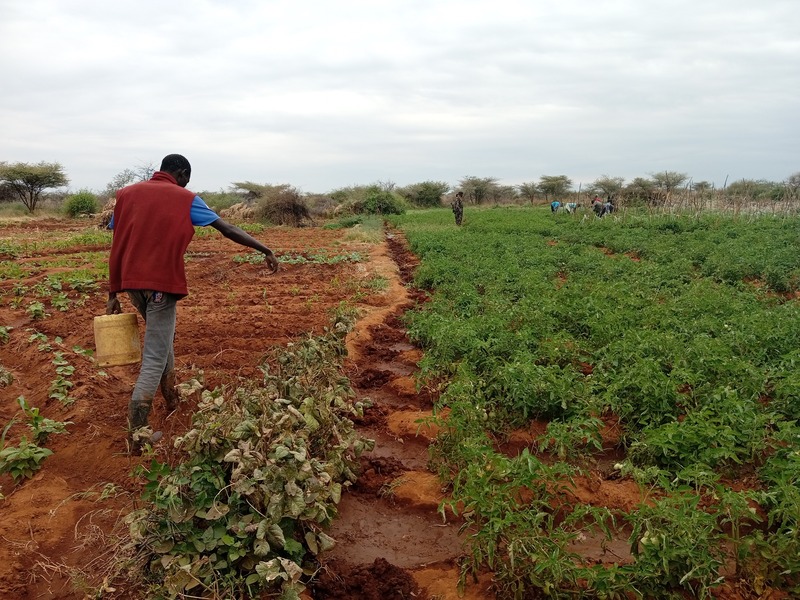 Arot Lokadon, fills a water jerican at Attir water kiosk that is served by Aroo water supply system in Ngaremara ward, Isiolo County. (Photo: Waweru Wairimu)
Arot Lokadon, fills a water jerican at Attir water kiosk that is served by Aroo water supply system in Ngaremara ward, Isiolo County. (Photo: Waweru Wairimu)
Peter Abilai said pastoralism had been made easier as they no longer trek longer distances with livestock in search of water and pastures.
"The health of the animals has also improved and their productivity as well. We are confident that we will not again lose animals in droves because they have water and pastures locally," he said, adding that they are now able to spend more time with their families.
"We used to walk for many kilometres with the animals while our wives went out to fetch water and firewood which saw both of us arrive late in the evening and unable to fend for the family".
Practising agropastoralism, he said, had significantly impacted their lives and economically empowered them.
Kebo Aret, an elder, said livestock troughs were being used by local pastoralists and herders from neighbouring Meru County which promoted peaceful coexistence. "We no longer fight for the resources but share because we know we will not run out of pastures and water".
Food security
Regina Napeiyo, a Community Health Promoter, says hygiene had improved and that diarrhoea cases among the children had reduced within Aroo and neighbouring areas.
There has been reduced risk of malnutrition among the under-fives, she said.
"The livestock, as you can see, are in good body condition and their production has increased enabling children to access milk regularly. The kitchen gardens which the majority of the women have set up at their homes have also contributed to food security at the family level," Regina said.
More than 20 kilometres away, we meet Angelina Abei at her farm in the Attan area where she has grown tomatoes, vegetables and green gram.
She said a local borehole encouraged her to venture into farming after many years of reliance on charcoal burning which she realised was causing devastation on the environment.
Next to her farm are vegetables, green grams and maize plantations for other women within the locality.
"We have realised that we were sleeping on a gold mine because the land is arable and fertile. The nutrition status of our families has improved due to enhanced access to food," she said, adding that they were taught modern farming methods before starting off their projects.
Angelina further noted part of the money she gets from selling farm produce goes to paying school fees for her three children. "We can support our husbands, provide for the family and save for unexpected needs".
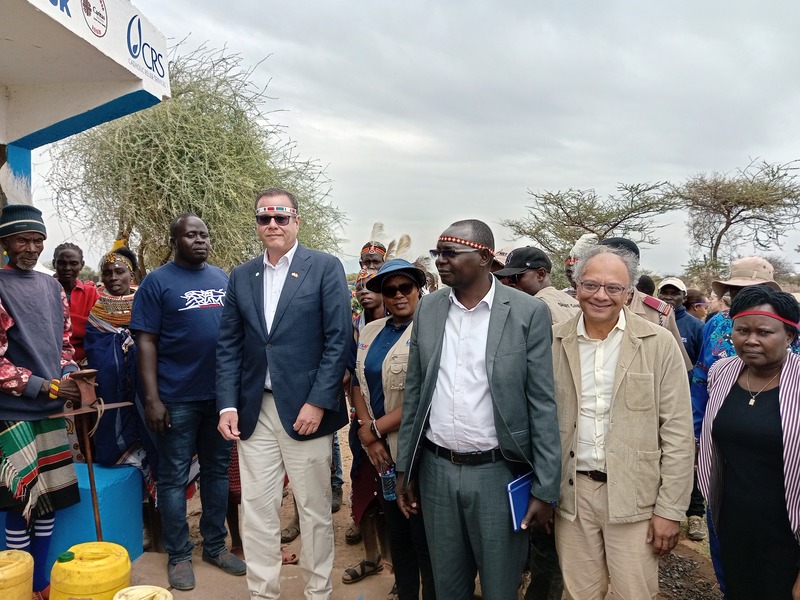 USAid Mission Director in Kenya David Gosney, Chief of Party USAid Nawiri and Isiolo Deputy Governor James Lowasa (holding a notebook) at Attir water kiosk that is served by Aroo water system in Ngaremara, Isiolo County. (Photo: Waweru Wairimu)
USAid Mission Director in Kenya David Gosney, Chief of Party USAid Nawiri and Isiolo Deputy Governor James Lowasa (holding a notebook) at Attir water kiosk that is served by Aroo water system in Ngaremara, Isiolo County. (Photo: Waweru Wairimu)
The water system was implemented by USAid Nawiri, Northern Rangelands Trust, COPAD, Jomo Kenyatta University of Agriculture and Technology (JKUAT) CETCIL project and Plant Village.
The water supports a 2.5-acre irrigation scheme, and community and livestock water supply and has a 100 cubic metre elevated storage tank.
The establishment of a Community Centre of Innovation is underway in the area.
Attractive venture
Esther Echakan is among the latest to join farming after seeing her neighbours reap big from the venture. "I started in April this year and I am currently selling off Sukuma (Kales)," she said.
The increasing number of residents taking up farming in the area has also seen some of the young Men (Morans) quit cattle rustling and embrace the venture.
A youth leader, Simon Lokolod, said crime cases had significantly reduced in the area as Morans were gradually embracing farming.
"They have realised that farming is a lucrative venture and are abandoning the retrogressive culture of carrying out cattle raids which puts their lives at risk," he said.
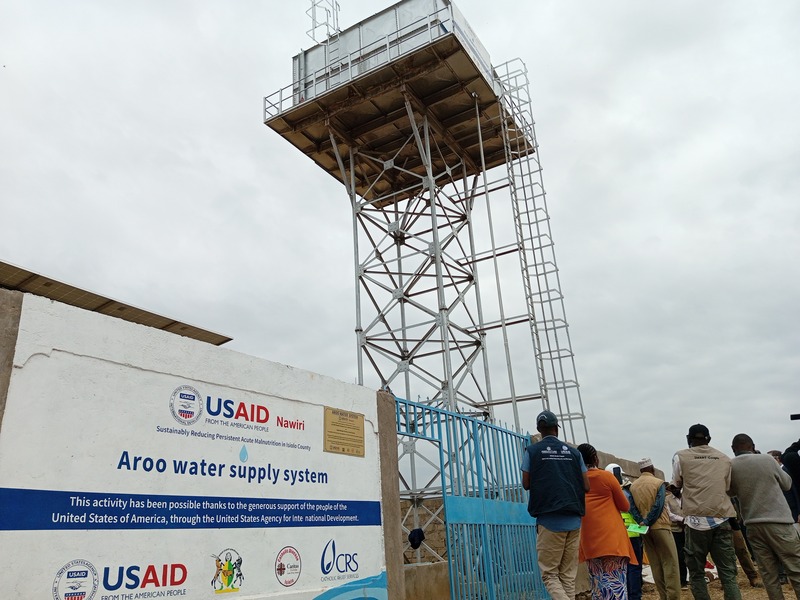 Aroo water supply system in Ngaremara ward, Isiolo County. (Photo: Waweru Wairimu)
Aroo water supply system in Ngaremara ward, Isiolo County. (Photo: Waweru Wairimu)
Simon said improved food security was a boon to pastoralism as families were no longer selling off livestock as they had enough food in their homes.
USAid Mission Director in Kenya David Gosney said the projects that sought to improve water access, enhance agricultural productivity and support sustainable livelihoods had seen the malnutrition rate in the county drop to 12 from 15 per cent.
"Apart from enhancing access to nutritious foods and averting hunger, the projects have enabled the residents to live dignified lives," David said.
He spoke during a recent assessment of the impact and progress of the two water projects, accompanied by Chief of Party USAid Nawiri Margaret Kahiga, Isiolo Deputy Governor James Lowasa and Partnership for Resilience and Economic Growth (PREG) partners representatives.
"We are committed to supporting development initiatives aimed at empowering the local communities," he said.
The Deputy Governor who also doubles up as the County Health Executive said sanitation and hygiene had improved in the area due to access to clean water.
The projects, he said, had also reduced resource-based conflicts as communities no longer competed for natural resources which were abundant in the two areas.
"We are committed to partnering with various actors in ensuring improved water access because with water, we will be able to beat hunger, and malnutrition and enhance productivity of our farms and livestock," he said.
Reader comments
Follow Us and Stay Connected!
We'd love for you to join our community and stay updated with our latest stories and updates. Follow us on our social media channels and be part of the conversation!
Let's stay connected and keep the dialogue going!


